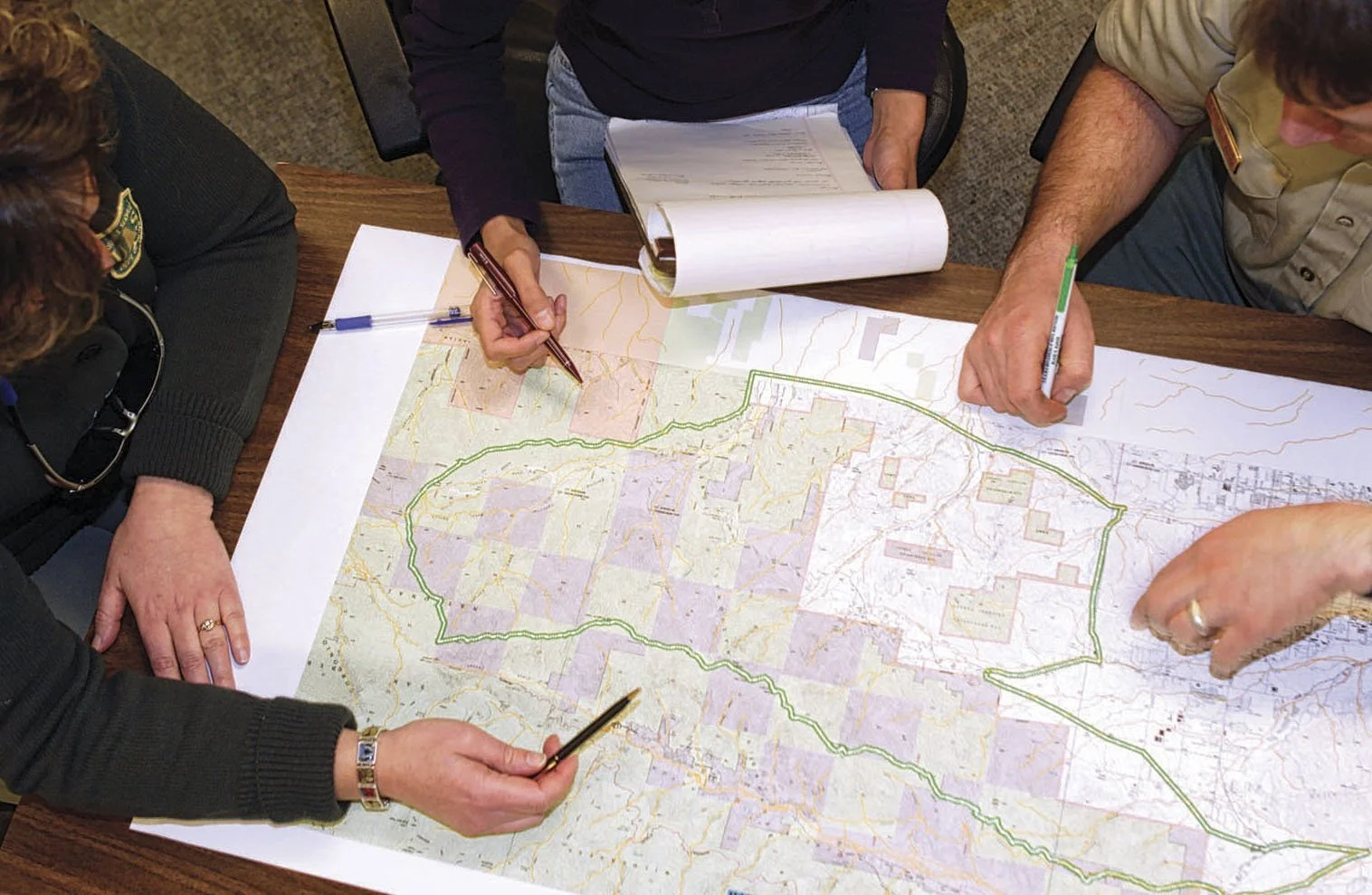Visit These Sites For Even More Resources:
Not sure where to start, or need more context? These seven case studies from landscapes throughout the West lay the groundwork for engaging communities in prescribed fire and smoke.
Visit These Sites For Even More Resources:
Not sure where to start, or need more context? These seven case studies from landscapes throughout the West lay the groundwork for engaging communities in prescribed fire and smoke.

Some communities are more receptive to meetings than others. Local culture, while never monolithic, typically has a dominant personality. Do you have many actively involved community members who value conversation and transparency, and have a good amount of leisure time? Or do people typically work 40+ hour weeks, and usually only collaborate when an issue or problem presents itself? Dig around and talk to folks, and make sure you know what’s worked well in the past, and what hasn’t.
“If you doubt a meeting will be effective or well-attended, it’s likely wise to listen to your gut and put your time and energy into understanding your audience and developing audience segments. ”
See the Audience + Messaging section of this toolkit for guidance.

Standalone meetings typically aren’t a great use of time or resources. Plan meetings and open houses as part of a planned, multi-pronged campaign (see TELE Engagement Guide Section 7.1). Your meeting should be coordinated with specific, highly-targeted outreach initiatives delivered via mail, social media, your website, local news outlets and other channels that are valued and used by your community.
Instead of a panel or formal presentation, consider an open house with partners at tables. This allows for one-on-one conversations, which many presenters and attendees are more comfortable with. It also encourages attendance by creating flexibility for people to show up when they can, for a shorter period.
Meetings have a stronger draw when multiple partners and cooperators from different organizations are involved. As prescribed fire is frequently not the flagship issue, but rather, a supportive tool in forest restoration initiatives, a collaborative approach is critical. Specifically target community leaders or other key people in your area who may be able to spread information and enthusiasm within their networks.
Tie in a community meeting or open house with another type of engagement, such as a movie showing. Many communities have seen excellent turnout, and driven productive conversations, with public showings of “The Era of Megafires” featuring the research of Dr. Paul Hessburg. See North 40 Productions for details.
Fire Adapted Communities Learning Network
Strategies for Virtual Meetings
Fire Adapted Communities Learning Network—Getting a Great Turnout
Part 1 / Part 2 / Part 3